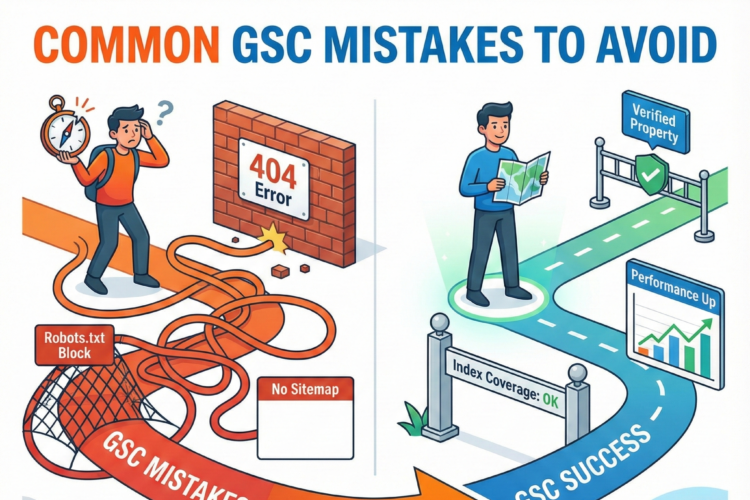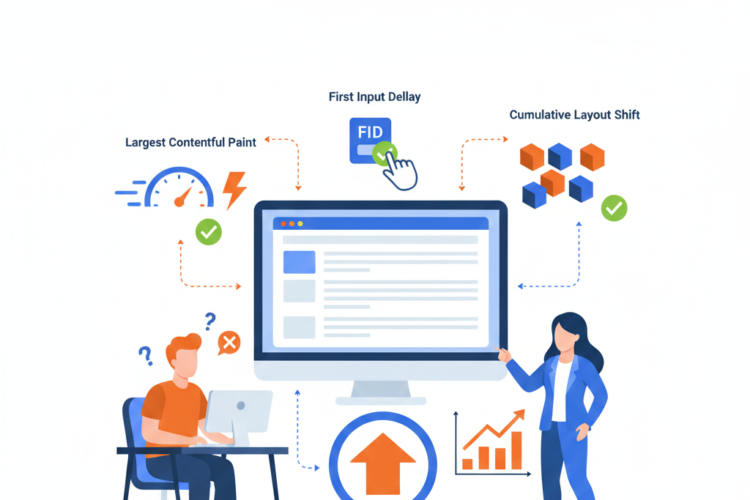
What is Domain Authority? A Beginner’s Guide
Table of Contents
-
Introduction
-
What Is Domain Authority (DA)?
-
Who Created Domain Authority?
-
How Is Domain Authority Calculated?
-
Domain Authority vs. Page Authority
-
Why Is DA Important for SEO?
-
What Is a “Good” Domain Authority Score?
-
How to Check Your Domain Authority
-
Factors That Influence Domain Authority
-
How to Improve Your Domain Authority
-
Common Myths About Domain Authority
-
Domain Authority vs. Google Ranking
-
How to Use DA in Your SEO Strategy
-
Final Thoughts
1. Introduction
In the vast world of SEO, metrics help marketers and website owners understand how well their site may perform on search engines. One such metric is Domain Authority (DA)—a score that helps you estimate how likely a website is to rank in Google search results.
But what is Domain Authority exactly, and how can you use it to your advantage? That’s what this guide is here to answer.
2. What Is Domain Authority (DA)?
Domain Authority is a search engine ranking score developed by Moz, which predicts how likely a website is to rank on search engine result pages (SERPs). The score ranges from 1 to 100, with higher scores indicating a greater ability to rank.
Example:
-
A website like Forbes.com might have a DA of 95+.
-
A brand-new blog might start with a DA of 1.
Note: DA is not a Google metric. It’s a third-party metric used by SEO tools to compare and evaluate websites.
3. Who Created Domain Authority?
DA was developed by Moz, a leading SEO software company. It’s part of a suite of metrics that includes:
-
Page Authority (PA)
-
Spam Score
-
Linking Root Domains
Moz introduced Domain Authority to provide SEOs with a relative measure of how strong a domain is compared to others, particularly from a backlink profile standpoint.
4. How Is Domain Authority Calculated?
Domain Authority is based on a machine learning algorithm and is calculated by analyzing multiple factors, including:
-
Number and quality of inbound links
-
Linking root domains (unique sites linking to you)
-
Moz’s proprietary MozRank and MozTrust
-
Site structure and content
-
Overall backlink profile health
Moz uses over 40 signals in its DA calculation.
Important: Because it’s a relative metric, your DA score can fluctuate even if your site doesn’t change—if competitors gain or lose links, your DA may shift.
5. Domain Authority vs. Page Authority
| Metric | Domain Authority (DA) | Page Authority (PA) |
|---|---|---|
| Scope | Measures strength of the entire domain | Measures strength of a specific page |
| Use Case | Overall domain SEO comparison | Predicting ranking of individual URLs |
| Example | www.yoursite.com (DA 50) | www.yoursite.com/blog-post (PA 32) |
Both are useful, but they serve different purposes.
6. Why Is DA Important for SEO?
Even though Google doesn’t use DA directly, many SEO professionals rely on it for:
-
Competitor analysis
-
Link building strategy
-
Domain valuation
-
Client reporting and benchmarking
A high DA does not guarantee top rankings, but it often correlates with stronger performance, especially when supported by quality content and technical SEO.
7. What Is a “Good” Domain Authority Score?
There’s no absolute definition of a “good” score—it’s relative to your competition.
| DA Score Range | Interpretation |
|---|---|
| 1–10 | New or low-authority site |
| 11–30 | Basic presence, low trust |
| 31–50 | Decent authority, growing presence |
| 51–70 | Strong authority, competitive |
| 71–90+ | Very high authority, top-tier |
The key is to outperform competitors in your niche—not chase a 100 DA.
8. How to Check Your Domain Authority
You can check DA using:
-
MozBar Chrome Extension
-
Ahrefs (Domain Rating as an alternative)
-
SEMrush (Authority Score)
-
Ubersuggest
Tip: Monitor DA monthly—frequent checks can show natural fluctuations.
9. Factors That Influence Domain Authority
🧱 1. Quality of Backlinks
-
Backlinks from relevant, authoritative websites increase DA.
🌐 2. Number of Linking Root Domains
-
The more unique domains link to you, the better.
🔗 Internal Linking Structure
-
Good site architecture passes authority internally.
📱 Mobile Optimization
-
Mobile-friendly websites indirectly support link acquisition and SEO.
🚀 Site Speed and Technical SEO
-
A clean, fast-loading site supports better crawlability.
🔍 Content Quality
-
Valuable, unique content naturally earns high-quality links.
10. How to Improve Your Domain Authority
✅ 1. Create Link-Worthy Content
-
Publish comprehensive guides, original research, infographics, tools, etc.
✅ 2. Build High-Quality Backlinks
-
Guest posting, broken link building, digital PR, and influencer outreach.
✅ 3. Remove Toxic Backlinks
-
Use tools like Moz and Google Search Console to identify spammy links and disavow them.
✅ 4. Improve On-Site SEO
-
Optimize title tags, URLs, meta descriptions, and fix crawl errors.
✅ 5. Strengthen Internal Linking
-
Link between related blog posts and pages to improve authority flow.
✅ 6. Be Patient
-
Domain Authority takes time—it’s a long-term SEO indicator.
11. Common Myths About Domain Authority
| Myth | Truth |
|---|---|
| DA is a Google ranking factor | ❌ No. Google does not use DA. |
| Higher DA = Better SEO | ❌ Not always. Content, intent, and relevance matter more. |
| DA can be bought or hacked | ❌ It reflects natural, earned authority over time. |
| You need 90+ DA to rank | ❌ You only need to outperform your direct competitors. |
12. Domain Authority vs. Google Ranking
DA is correlational, not causal. Here’s the difference:
| Metric | Purpose |
|---|---|
| Domain Authority | Predictive score by Moz |
| Google Ranking | Determined by over 200 ranking factors |
That said, sites with high DA tend to perform well, because they usually have:
-
Better content
-
More backlinks
-
Strong site structure
So, DA is best used as a benchmark, not a target.
13. How to Use DA in Your SEO Strategy
🔍 1. Competitive Analysis
Compare your DA with competitors in your niche. This tells you how much authority you need to build to compete.
🔗 2. Link Prospecting
Use DA to evaluate link-building opportunities. Aim to get links from higher or similar DA sites.
📈 3. Reporting Progress
Track your DA over time to show improvement in your authority-building efforts.
🛠️ 4. Setting Goals
Set realistic DA growth targets based on current positioning and industry norms.
14. Final Thoughts
Domain Authority is not the ultimate SEO goal—but it’s a valuable indicator of your website’s potential to rank. It helps you understand your backlink profile, compare yourself with competitors, and track growth.
Here’s the secret: focus on creating value, earning natural backlinks, and maintaining technical SEO health. The DA will follow.
Author



